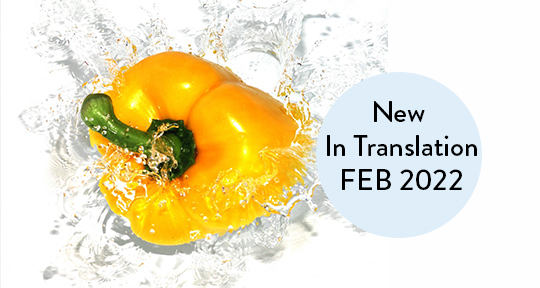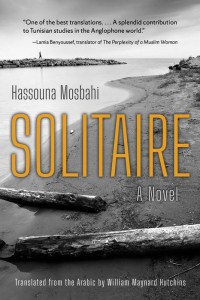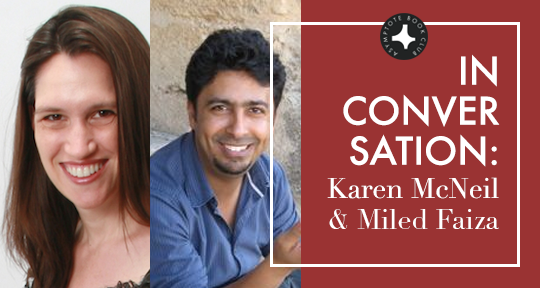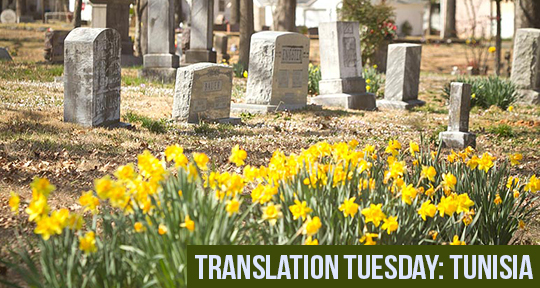This Translation Tuesday, Tunisian writer Ines Abassi pens a powerful story of a woman who escapes her violent husband in order to furnish her account of things. In a breathless first-person narration captured brilliantly by translators Karen McNeil and Miled Faiza—who also translated Shukri Mabkhout’s The Italian, our October 2021 Book Club selection—the power of this piece comes from its agile movement between the mind’s self-doubt and the certainty of one’s bodily experience. This memorable story shows us how Ines Abassi is a compelling voice working in Arabic today.
“I have wanted to translate this short story from the moment I read it in the Egyptian cultural magazine Mirit in 2019 because of its powerful expression of resistance. Resistance here is manifested in the ability to say no, to challenge the toxic masculine mentality that sees women’s bodies as a commodity to be consumed on demand. Resistance is also manifested in the author’s alternation of description, contemplation, and the narrative, in which time overlaps in a way that expresses the complexity of life and relationships. Inas Al Abbasi, one of the most important writers of her generation, is able to express in this short story the inevitability of continuing to confront and challenge violence in closed rooms and in an open writing in which colors, music, and events overlap to create food for a broken soul.”
—Miled Faiza
The night is stained with light.
It might end, this night, with a translucent fog covering the tops of the cypresses, like last night. Or it might end with a pale morning, crowned with a laurel wreath of terror and with an urge to run away, like the morning of that one summer night. Where does the road home start from? From the last house that I escaped from? Or from the last hurriedly booked hotel room?
I remember clearly: his hand was around my neck. The cloudy look in his eyes. The moon was alone outside, with no poems to praise its illusory beauty. I remember, at the same time, the delicate light flowing into the room through the open windows. We were in our room. We were together and his hand was around my neck, on that night and the other nights like it throughout the years, his hand pressing on my soul.
The road winds through the trees. There are scattered farms on each side of the road, and I see ducks and other farm animals here and there. When my heart starts to pound at the heights, I close my eyes. I remember my eyes clouding over from the pain. The scene in front of me is extravagantly beautiful. My eyes drink in the greenery at every bend, until I forget the hands that choked me one summer night. I feel dizzy from the extravagant beauty of the road as it ascends toward Bouisse, and I forget.
They say that children with iron deficiency will peel the lead paint off the walls and eat it. What about souls with love deficiency? They feed on the bark of trees—every single one, the trees on the road as well as the forest trees. Souls that are hungry for love touch trees, get close to them and embrace them. I did this every time, in every trip I took after becoming free of him, and from his hand and the frying pan. Every time I stopped the rental car and get out to embrace the trees.
A life can completely change between one night and another. READ MORE…





